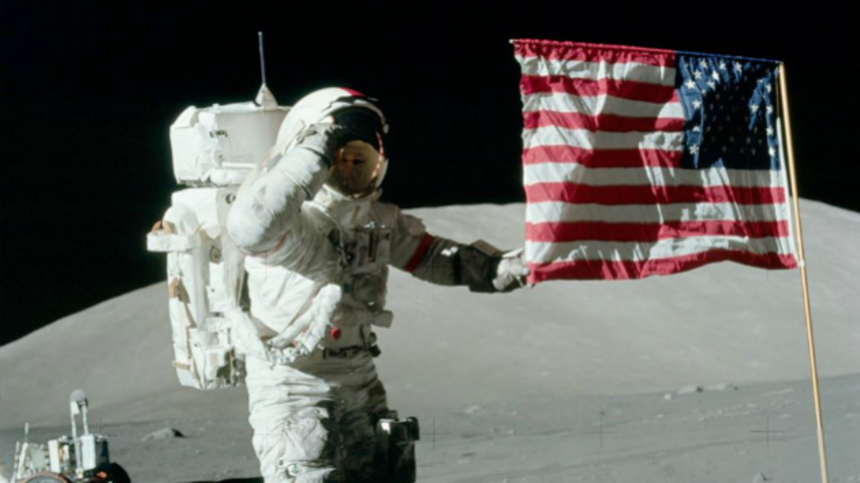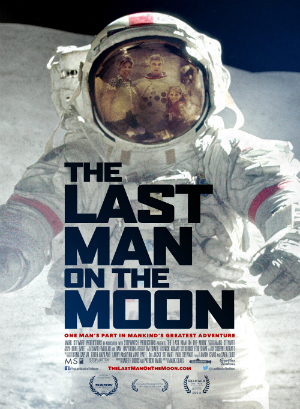Review: THE LAST MAN ON THE MOON, For Those Who Stare Into The Sky And Wonder

Initially more of a hagiography than a documentary, The Last Man on the Moon gradually expands beyond its worshipful stance to examine the U.S. space program and, in particuar, the contributions of the titular astronaut.
The U.S. space program in the 1960s was a thing of awe and wonder, at least as reported in the mainstream press. That was certainly my impression as a child. Like a fair number of my peers, I wanted to go to space. I still remember sitting in the family car, snuggled between adults, listening to the news on the radio as we drove home from an event one night in July 1969. I stared up into the sky and wondered what it would feel like to walk on the moon.
Gene Cernan jumped at the opportunity to go to space, happily moving to Houston, Texas in October 1963, to begin his NASA training. He was part of the third wave of astronauts -- for cinematic reference, Philip Kaufman's The Right Stuff (1983) follows the first wave -- and, by that point, the country was completely enamored with the space program, and so was Cernan.
In a series of new interviews, Cernan talks about that period of his life, and freely acknowledges that he neglected his family in favor of focusing on his training. That wasn't exceptional for the time period, in general; husbands were expected to go to work and provide for their families, while mothers stayed home, cared for domestic duties and raised the children. It seems that Cernan and other astronauts took that to extremes, however.
 Those matters definitely take a back seat in the documentary to Cernan's astronaut activity. While a positive spirit predominates, director Mark Craig does not shy away from failings in the space program, such as a plane crash that took the lives of two astronauts, opening up Cernan's opportunity to pilot Gemini 9A into space, a mission on which he frankly states that he fell short of expectations. The tragedy of Apollo 1, in which three men burned to death on the launch pad, is also covered.
Those matters definitely take a back seat in the documentary to Cernan's astronaut activity. While a positive spirit predominates, director Mark Craig does not shy away from failings in the space program, such as a plane crash that took the lives of two astronauts, opening up Cernan's opportunity to pilot Gemini 9A into space, a mission on which he frankly states that he fell short of expectations. The tragedy of Apollo 1, in which three men burned to death on the launch pad, is also covered.
Cernan returned to space on Apollo 10 in 1969, the mission preceding the one that landed men on the moon for the first time, though it would be three years before he made it to the moon himself, becoming the last person to walk on its surface.
Some 40 years later, Cernan's descriptions of the mission remain vivid. And no wonder: he says he still thinks about it nearly every day. He wrote a book about it, published in 1999, and has been featured in a number of other programs drawing on his experiences.
The Last Man on the Moon is, finally, an incomplete story, especially for those of us who still stare up into the sky at night and dream of walking there someday. As one of the few to achieve that dream, though, Gene Cernan is in a unique position and dignifies the film with his grace and honesty.
The film opens in select theaters on Friday, February 26, and will also be available to watch via various Video On Demand platforms. More information is available at the official Facebook page.
The Last Man on the Moon
Director(s)
- Mark Craig
Writer(s)
- Eugene Cernan (story)
- Mark Craig
Cast
- Alan Bean
- Eugene Cernan
- Charles Duke
- Richard Gordon







